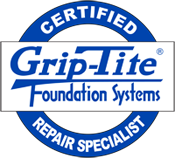
Key Takeaways
- Special needs trusts ensure an individual can still access government benefits such as Medicaid and SSI. They serve as an important source of supplemental funding for people with disabilities.
- First-party special needs trusts are funded by the beneficiary’s assets, such as settlements or inheritances. These trusts after the beneficiary’s death are subject to Medicaid payback provisions.
- Third-party special needs trusts are funded by assets owned by other people, typically parents or other relatives. They lack the Medicaid reimbursement provision, rendering them ideal for estate planning.
- First, you have to establish and administer your trust correctly. This is very important to maintain eligibility for public assistance programs such as Medicaid and SNAP, and to avoid any legal violations.
- Each type of trust carries its specific tax consequences and regulations. Thus, working with a qualified attorney or tax advisor is essential in order to avoid pitfalls and allow for proper planning!
- Consistently taking time to review and update the trust provisions is important. Together with professional trust administration, it promotes financial stability and the ability to adapt to changing needs over time.
The first-party special needs trust is funded with the money of the disabled individual, typically from an inheritance or personal injury settlement.
A third-party special needs trust contains gifts or assets that someone other than the disabled individual establishes for their care.
Both types of trusts aim to keep the person with special needs eligible for benefits like Supplemental Security Income (SSI) and Medicaid in the United States.
This means that while first-party trusts are required to pay back Medicaid when the person dies, third-party trusts are not subject to this requirement.
These trusts are subject to limited federal and state regulations.
How funds are received or disbursed has the potential to dramatically impact an individual’s eligibility for public assistance.
Our full main post will further explain the difference and how each trust operates in real life.
What Is A Special Needs Trust?
A special needs trust is a type of legal arrangement that can allow you to hold and manage funds for the benefit of a person with disabilities. In the U.S., these trusts allow the wealthier to give their disabled descendants additional resources. They enable beneficiaries to retain eligibility for needs-based government programs such as Supplemental Security Income (SSI) and Medicaid.
The trust can pay for things outside of the scope of these programs. This covers the cost of therapy, personal care, and outings, all while shielding that essential benefits. There are three types: first-party, third-party, and pooled trusts.
First-party and pooled trusts utilize funds that are owned by the individual with special needs—such as lawsuit settlements or inheritances. Third-party trusts receive funds from relatives or other loved ones of the individual with special needs, but never from the individual.
Securing Future Financial Stability
Special needs trusts provide families with an important tool to plan for a loved one’s long-term needs. A special needs trust lets you put away funds specifically for your loved one. This money can be used to supplement a beneficiary’s care, housing, or other necessities of life.
This built-in protection translates directly to constant financial support, even after loved ones are gone and cannot provide assistance. For instance, trust funds can pay for dental care, specialized tutoring, or assistance at home—things parents don’t always anticipate as they age with their child.
Knowing that you have something planned out in advance reduces stress and guarantees future financial stability.
Protecting Essential Public Benefits
Ensuring continued access to Medicaid and SSI is usually key. By using a special needs trust, the beneficiary’s money is no longer in their name. This happens so that government agencies continue to view them as eligible.
If a trust is not established correctly, benefits may be forfeited. If a third-party trust has any funds that were under the control of the special needs individual, the government will seek repayment. Or they might choose to eliminate certain benefits.
Substantial compliance with the rules is essential to retaining these vital supports.
Enhancing Quality Of Life
Trusts can pay for goods and services that enhance quality of life, including education, recreation, vacations, or supplemental conveyances like a modified vehicle. For example, a special needs trust could pay for an art class or summer camp, or cover the cost of a wheelchair or computer.
These trusts are dynamic and meet evolving needs. They make it possible for individuals with disabilities to have greater freedom and independence, and to live a fuller life.

First-Party VS. Third-Party Trusts
Special needs trusts (SNTs) are vital legal instruments. They are an important component of estate and financial planning for people with disabilities in the US. First-party and third-party SNTs are the two primary types. They vary based on how they can be established, where their funds can come from, and what rules apply.
Grasping these distinctions is key for anyone seeking to protect their loved one’s future. Second, it protects their assets and helps ensure they stay eligible for government benefits.
1. Defining First-Party SNTs
A first-party SNT, as the name indicates, is established utilizing the assets of the individual with special needs. This can occur when an individual receives an inheritance, wins a judgment, or is awarded a settlement.
As a practical matter, in California and the rest of the U.S., these trusts have to be established for someone under the age of 65. In some cases, state courts will monitor these trusts ensuring compliance with the rules. This is because only a first-party trust can protect a person’s own money from endangering their benefits.
2. Understanding Third-Party SNTs
Third-party SNTs are funded by third parties, usually parents or other family members. As such, the beneficiary can never own these assets.
These trusts are often used in family estate planning, allowing family members to leave money that benefits them without endangering government assistance. Parents may, for instance, add a third-party special needs trust (SNT) to their will. This means that important extra care for their child can continue even after they’re gone.
3. Key Funding Source Differences
Trust Type | Funding Source |
First-Party SNT | Beneficiary’s assets |
Third-Party SNT | Family or outside assets |
These key differences in funding sources heavily influence how trusts are administered. Once a beneficiary’s own money goes into a third-party trust, it can no longer be their own money and would thus disqualify them from government assistance.
Among the key differences, first-party trusts are the only option available to protect a beneficiary’s settlement or inheritance.
4. Medicaid Payback: A Crucial Distinction
Medicaid payback is a key difference between the two types of trusts. First-party trusts are required to pay back Medicaid for costs incurred after the beneficiary’s death.
Third-party trusts don’t have this requirement, which means the remaining money can be distributed to family or others. Knowing this difference is important when planning for the long term.
5. Tax Implications: What To Know
Both first- and third-party trusts are subject to certain tax rules. The income of the trust may have different tax implications depending on whether it is a first or third-party trust.
First-party trusts usually have income taxed as the beneficiary’s, but third-party trusts can have an independent tax ID. Precise tax planning with a knowledgeable fiduciary advisor is essential.
Fund Your Special Needs Trust
Funding a special needs trust calls for careful thought about where the money comes from and how it fits the needs of the person it’s set up for. How the trust operates and is taxed now depends on the correct funding source being chosen. Whether it’s a settlement, inheritance, or planned gift, it’s what allows it to make a difference for the beneficiary today and tomorrow.
What’s important is for the kind of funding to be appropriate to the person’s life, their family, and the law of the state. Preserving the long-term integrity of the trust involves more than just establishing it properly; it requires ongoing review and oversight throughout the years.
Sources For First-Party Trusts
- Personal injury settlements
- Direct inheritances
- Divorce settlements
- Social Security back payments
When someone funds a first-party trust, they are putting their own money into it. This funding may be the result of a legal settlement or unexpected inheritance that has not already been directed into a trust.
These trusts are required to be irrevocable and have rigid requirements, including payback provisions to Medicaid after the beneficiary’s death. Every deposit and transfer must be carefully tracked, as public benefits and all-important eligibility may hang in the balance.
In California, for instance, if someone with a disability successfully litigates, those assets need to be put in a first-party or pooled trust. This step is key to ensuring eligibility for means-tested benefits isn’t lost.
Gifting To Third-Party Trusts
Anyone wishing to provide for the special needs individual less directly could gift money or property to a third-party special needs trust. More flexibility with these trusts—life insurance or a will funding them is typical.
Testamentary trusts, which are established through a will, are always included in this category. The grantor can choose any individual(s) to receive the remaining assets after the beneficiary dies.
Updating beneficiary designations and proper planning allow for assets to be protected and steps to be taken before ambiguity and confusion arise.
Long-Term Financial Management
Long-term trust health is contingent on regular review, updating, and approval, and in some cases, maintaining multiple trustees. Hiring a professional to manage the trust can keep it running smoothly.
This is important because laws, markets, and needs are constantly evolving. Annual reviews ensure the trust continues to align with the family’s objectives and the beneficiary’s requirements.
Impact On Government Benefits
Special needs trusts have been crucial to determining an individual’s eligibility for public benefits, such as SSI and Medicaid. These special needs trusts are currently important options available to people with disabilities. Most critically, they prevent people from saving money for private care with government programs, forcing them to follow hard-to-manage regulations that risk the withdrawal of critical assistance.
The main point is that the source of funds—whether from the beneficiary or someone else—sets the type of trust and how it interacts with state and federal aid programs.
Preserving SSI And Medicaid
Special needs trusts are established to preserve an individual’s eligibility for government benefits such as Supplemental Security Income (SSI) and Medicaid. They do this by placing assets beyond the beneficiary’s direct control. If the beneficiary holds assets in their name alone, even a small amount can exceed the asset cap.
Without this extension, their benefits would be terminated. A trust can pay for additional needs, including therapies or equipment. In the meantime, the beneficiary never loses access to his/her SSI and Medicaid.
First-party trusts, by contrast, utilize the beneficiary’s funds, such as money received from an inheritance or settlement. They need reimbursement to the state when the recipient dies. Third-party trusts are funded by family or friends. They lack the payback rule, allowing unused funds to be passed down to other beneficiaries.
How Each Trust Interacts
Trust Type | Source of Funds | Impact on Benefits | Payback Required | Key Use Case |
First-Party | Beneficiary’s assets | Can affect benefits | Yes | Settlements, inheritances |
Third-Party | Family, others | No impact | No | Gifts, planned inheritances |
Third-party special needs trusts allow families to provide for a loved one’s quality of life without jeopardizing government benefits. Blending funds or otherwise mishandling the trust can lead to issues such as benefits rescission or repayment being required.
Avoiding Benefit Disqualification
To prevent disqualification, it is advised to maintain a clear distinction between third-party and first-party funds, adhere to the rules governing trusts, and revise trust documents as legislation evolves.
One of the common mistakes is depositing the beneficiary’s own money into a third-party trust. Another common error is not informing state agencies when a trust changes.
Consistent documentation, continuous monitoring, and robust legal advice play key roles in keeping these benefits safe.

Set Up Your Trust Correctly
Indeed, thoughtful administration determines the course of any special needs trust’s future. First, you need to know what the process looks like, along with the major legal standards. Then, understand the value of having clear, specific documents. This helps to make sure that the trust is functioning as intended and still complies with all state and federal regulations.
Setting up a trust differs by state. In California and across the U.S., trust rules often shift, so legal advice matters.
Essential Legal Requirements
To establish a valid special needs trust, you need to name the individual with a disability as the beneficiary. Further, you need to explicitly express the trust’s purpose – to protect eligibility for public benefits such as SSI or Medi-Cal.
First-party trusts must be irrevocable and funded with property belonging to the beneficiary.
Third-party trusts can be either revocable or irrevocable trusts. Not addressing these issues can lead to the loss of their benefits. If an inheritance is not immediately put into a trust, the money needs to be put into a first-party or pooled trust.
To do otherwise is to jeopardize vital assistance for the beneficiary. Always consult with an attorney experienced in special needs law to prevent these mistakes.
Common Pitfalls To Avoid
- Missing key trust language
- Failing to meet state guidelines
- Naming the wrong remainder beneficiaries
- Mistake #1 – Not matching the type of trust with the source of funds
- Not updating the trust after big life changes
Omitting seemingly small details can result in families losing access to vital public benefits or facing years of litigation in probate court. A testamentary trust, by way of example, can only be third-party.
With diligent planning, you can prevent these headaches from occurring down the road.
The Trustee’s Critical Role
A trustee’s duties include proper fund management, accurate record-keeping, knowledge of the ever-changing legal landscape, and a fiduciary duty to prioritize the beneficiary. Most trusts name at least two trustees to manage this heavy burden.
Choose someone responsible and educated in trust regulations. Properly managed, it can ensure the beneficiary’s financial security and peace of mind.
Why Expert Guidance Matters
Special needs trusts can be complicated. Choosing a first-party or third-party trust requires careful consideration. The rules vary depending on where the money comes from and who sets up the trust. They have a huge effect on public benefits such as SSI or Medicaid.
Even small mistakes—like mixing funds or missing a payback rule—can mean the loss of critical support for the person with special needs. The expert guidance provided by elder law attorneys is invaluable. It’s frequently the linchpin to making sure everything truly goes right.
These professionals are familiar with the relevant state and federal laws that govern trust options. They hold the keys to guiding families down the right educational path.
Navigating Complex Legal Waters
Legal restrictions surrounding special needs trusts vary from state to state. Federal laws provide the overarching rules of the road, but each state can add its curveballs. An experienced elder law attorney can help you break down all these layers.
They help families understand how to establish pooled trusts that preserve public benefits. For instance, first-party trusts have rigid Medicaid payback provisions, whereas such provisions are absent in third-party trusts. Legal missteps are costly, such as establishing the wrong type of trust or failing to meet important time-sensitive deadlines.
Tailoring Trusts To Individual Needs
Everyone’s needs are unique. An effective trust must fit the beneficiary’s life, goals, and available resources. Lawyers and technical advisors work with families and individuals to design specific rules for the trust.
They include provisions that increase fiscal certainty and permit revisions as circumstances change. Regular discussions ensure that the plan is current with changing regulations and evolving family requirements.
Ensuring Long-Term Trust Viability
Protecting a trust over time requires consistent, regular review. Guidance from skilled advisors catches problems at the outset, recalibrates for changes in law, and assists families in planning for the long term.
Only skilled, professional managers can ensure the trust remains on track, continuing to meet the beneficiary’s needs far into the future.
Managing Ongoing Administration
Operating a trust requires ongoing, active management. It’s all about good record-keeping and setting up periodic check-ins. Providing consistent care and support is crucial.
Families often experience significant and sometimes rapidly changing medical, financial, or legal circumstances. With the right expertise, they can proactively address issues, allowing the trust to remain dynamic and protected.
Conclusion
Choosing the appropriate special needs trust requires careful consideration. First-party trusts utilize the individual’s funds, perhaps from the individual’s lawsuit or a gift from their family. Third-party trusts are funded by family members, which does not jeopardize Medicaid payback provisions. In California, these rules are stretched thin, so people have to be keen-eyed about local ordinances. While both trust types can be equally useful in assisting folks maintaining SSI and Medi-Cal, the joint must meet the person’s needs and life. Miss one simple step, and desperately needed benefits could slip through your fingers. Don’t just hire any lawyer—talk to a pro who specializes in California trusts. Sound guidance can spare you heartache, time, and money. Want more information or assistance? Contact a local special needs trust expert and establish that third-party trust as early in the process as possible.
Frequently Asked Questions
1. What Is The Main Difference Between A First-Party And A Third-Party Special Needs Trust?
A first-party trust is funded with the beneficiary’s assets. A third-party trust is funded with assets that do not belong to the beneficiary. This distinction makes a difference in terms of who can put money into the trust, and what happens to any remaining funds.
2. Who Can Set Up A First-Party Special Needs Trust?
Only the person with special needs can establish a first-party trust. The process can be started by their parent, grandparent, legal guardian, or a court. This is indeed required under U.S. Law.
3. Will A Special Needs Trust Affect SSI Or Medicaid Benefits?
NOTTRUE.E Will a special needs trust impact SSI or Medicaid benefits? This protection is perhaps the most important benefit.
4. Can I Add More Money To A Third-Party Special Needs Trust At Any Time?
Yes. It can be funded at any time by anyone other than the beneficiary. Generally, gifts, inheritances, or life insurance payouts are used to fund these trusts.
5. What Happens To The Money In A First-Party Trust When The Beneficiary Dies?
Any money left in a first-party trust at a beneficiary’s death must be returned to the state after the trust pays the Medicaid costs the beneficiary received. Only then can other heirs receive any money, if any remains.
6. Do I Need A Lawyer To Set Up A Special Needs Trust In California?
Yes. California law is very particular about the wording and structure of these trusts. An experienced estate planning attorney will make sure your trust is properly drafted to protect the benefits and comply with all legal standards.
7. Why Should I Consider A Third-Party Trust For My Child With Disabilities?
Creating a third-party trust allows you to provide an inheritance for your child without jeopardizing their government benefits. You can even decide who will receive any remaining money after your child passes away.
Your Dream Bathroom Starts With Mares & Dow Construction – Let’s Build A Beautiful Space Together
Thinking about a bathroom remodel in Concord, Walnut Creek, Pleasant Hill, or Lafayette? Whether you’re envisioning a luxurious spa-like retreat or a smart, space-saving update, choosing the right contractor is the most important step in turning your vision into reality.
With over 40 years of proven experience, the team at Mares & Dow Construction & Skylights is trusted throughout Contra Costa County for expert craftsmanship, transparent pricing, and outstanding customer service. We specialize in:
- Bathroom Remodeling – Upgrade your outdated bathroom into a stylish, functional, and energy-efficient space. From elegant tilework and modern fixtures to walk-in showers and custom vanities, we handle every detail with precision.
- Decks and Outdoor Living Spaces – Extend your home’s living space with beautifully designed decks, patios, and pergolas built to last.
- Foundation Repairs and Waterproofing – Protect your home from moisture and structural damage with our reliable repair and waterproofing services.
- Custom Skylight Installations – Brighten your bathroom naturally with premium skylight solutions installed by a certified VELUX 5-Star Skylight Specialist.
- General Contracting Services – From bathroom renovations to larger home improvement projects, we manage every aspect with the highest standards in the industry.
Proudly serving Alamo, Danville, Orinda, Martinez, San Ramon, and the surrounding areas, Mares & Dow Construction & Skylights is committed to delivering exceptional results. Whether you’re a homeowner upgrading your primary bathroom or an investor modernizing a property, we ensure your remodel is completed on time, within budget, and with superior quality.
Don’t trust your bathroom remodel to just anyone. Contact Mares & Dow Construction & Skylights today for a free, no-obligation consultation, and let’s turn your bathroom into a space you love.
Disclaimer
The materials available on this website are for informational and educational purposes only and are not intended to provide construction, legal, or professional advice. You should consult with a qualified general contractor or industry professional for advice concerning any specific construction project, remodeling plan, or structural concern. Do not act or refrain from acting based on any content included on this site without seeking appropriate professional guidance. The information presented on this website may not reflect the most current building codes, regulations, or industry best practices. No action should be taken in reliance on the information on this website. We disclaim all liability for actions taken or not taken based on any or all of the contents of this site to the fullest extent permitted by law.





 based on
based on 

